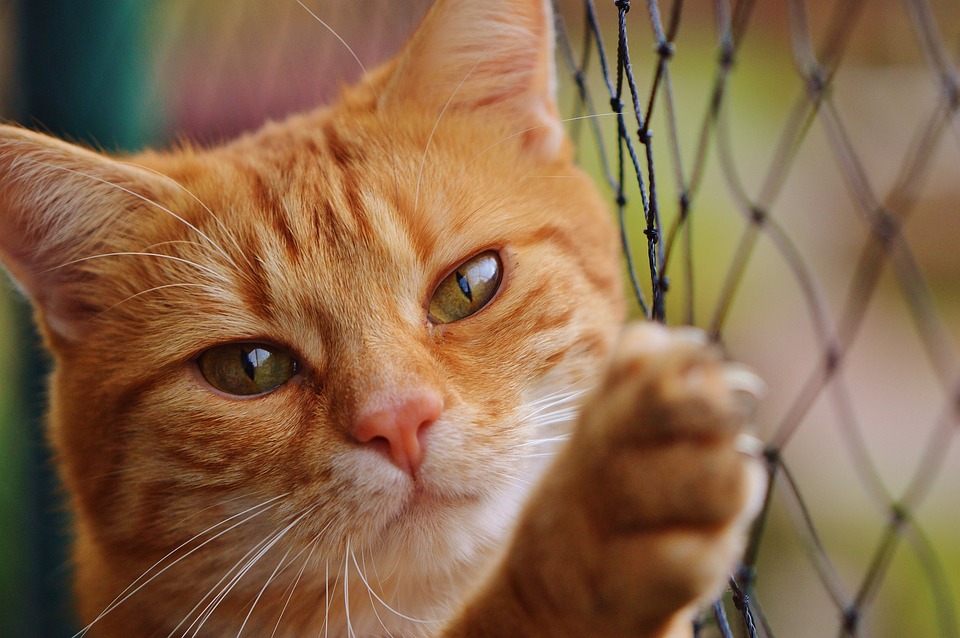Hairballs are a common issue faced by many cat owners. Cats are meticulous groomers, and while grooming is a natural behavior that keeps their coats clean and healthy, it can lead to hair buildup in their stomachs. This hair can clump together and form hairballs, which can cause discomfort and more serious health complications if not managed properly. In this article, we will discuss effective ways to prevent and manage hairballs in cats with a predisposition to hair buildup.
Understanding the Causes and Risks of Hairballs
1. Understanding the Causes of Hairballs
Cats groom themselves by licking their fur, and during this process, loose hair is ingested. While most of the hair passes through the digestive system, some may accumulate in the stomach and form hairballs. Cats with long hair are more prone to hairballs due to the increased amount of loose hair. Additionally, cats with skin conditions and excessive shedding may also be at a higher risk.
2. Recognizing the Risks of Hairballs
Hairballs can pose several risks to a cat’s health. If not properly managed, hairballs can cause gastrointestinal blockages, leading to serious complications. Cats may experience vomiting and regurgitation, which can be uncomfortable and distressing. Hairballs can also cause loss of appetite and weight loss, indicating potential underlying health issues.
Preventive Measures: Minimizing Hair Buildup
1. Regular Brushing Sessions
Regular brushing is crucial in preventing hairballs. It helps to remove loose hair and prevents it from being ingested during grooming. The frequency and duration of brushing sessions depend on the cat’s breed and hair length. Long-haired cats may require daily brushing, while short-haired cats may only need brushing a few times a week. Choosing the right grooming tools, such as slicker brushes or de-shedding tools, can make the process more effective. It is essential to use gentle grooming techniques to avoid causing any discomfort to the cat.
2. Dietary Adjustments
A high-quality, balanced diet plays a significant role in preventing hairballs. Incorporating fiber into the cat’s diet can help promote healthy digestion and prevent hair buildup. Fiber-rich foods, such as canned pumpkin or specialized hairball control diets, can be beneficial. It is also important to ensure that the cat stays hydrated by providing moisture-rich food and access to fresh water.
3. Supplements for Hairball Control
Certain supplements can aid in preventing hairballs. Omega-3 fatty acids, commonly found in fish oil supplements, can help reduce shedding and improve coat health. Digestive enzymes can assist in breaking down hair in the digestive system, reducing the formation of hairballs. Probiotics promote a healthy gut, which can help prevent hairball-related issues.
Effective Hairball Management Techniques
1. Hairball Remedies
Hairball lubricants and gels can help facilitate the passage of hairballs through the digestive system. These products can be given orally or mixed with food. Natural remedies like pumpkin or coconut oil can also help lubricate the digestive system. It is important to discuss options with a veterinarian to determine the most suitable hairball remedy for your cat.
2. Encouraging Healthy Habits
Increasing exercise and playtime can help promote regular digestion and reduce stress, which can contribute to hairball formation. Providing scratching posts and toys can encourage cats to groom themselves less frequently, minimizing hair ingestion. Minimizing stress and anxiety through environmental enrichments and a calm living environment can also be beneficial.
3. Regular Veterinary Check-ups
Routine check-ups with a veterinarian are essential in managing hairball issues. They can provide professional grooming assistance, ensuring that your cat’s coat is well-maintained and free from excessive hair. Veterinarians can also identify any underlying health issues that may contribute to hairball formation and recommend appropriate treatment.
FAQs: Frequently Asked Questions about Hairballs in Cats
1. Are hairballs normal in cats?
Hairballs are a natural occurrence in cats. However, excessive hairballs may indicate an underlying issue and should be addressed with a veterinarian.
2. When should I be concerned about my cat’s hairballs?
If your cat is experiencing frequent and severe hairballs, accompanied by other symptoms such as prolonged vomiting, loss of appetite, or weight loss, it is important to seek veterinary attention.
3. Can I prevent hairballs entirely?
While it may not be possible to completely eliminate hairballs, following preventive measures and managing hairball incidents can significantly reduce their occurrence.
4. Are there any home remedies to treat hairballs?
There are some home remedies, such as pumpkin or coconut oil, that can help with hairball management. However, it is important to consult a veterinarian before trying any home remedies and to use caution when administering them.
5. Can hairballs be a sign of an underlying health condition?
In some cases, frequent hairballs can be a sign of an underlying health issue, such as gastrointestinal disorders or skin conditions. It is important to consult a veterinarian for a proper diagnosis and treatment.
Conclusion: Promoting a Hairball-free Life for Your Feline Friend
By understanding the causes and risks of hairballs, implementing preventive measures, and effectively managing hairball incidents, you can provide your cat with a healthier and more comfortable life. Regular grooming, dietary adjustments, and appropriate veterinary care are key factors in ensuring your cat’s well-being and minimizing the impact of hairball issues. Remember, a proactive approach and open communication with your veterinarian can go a long way in preventing and managing hairballs in cats with a predisposition to hair buildup.








